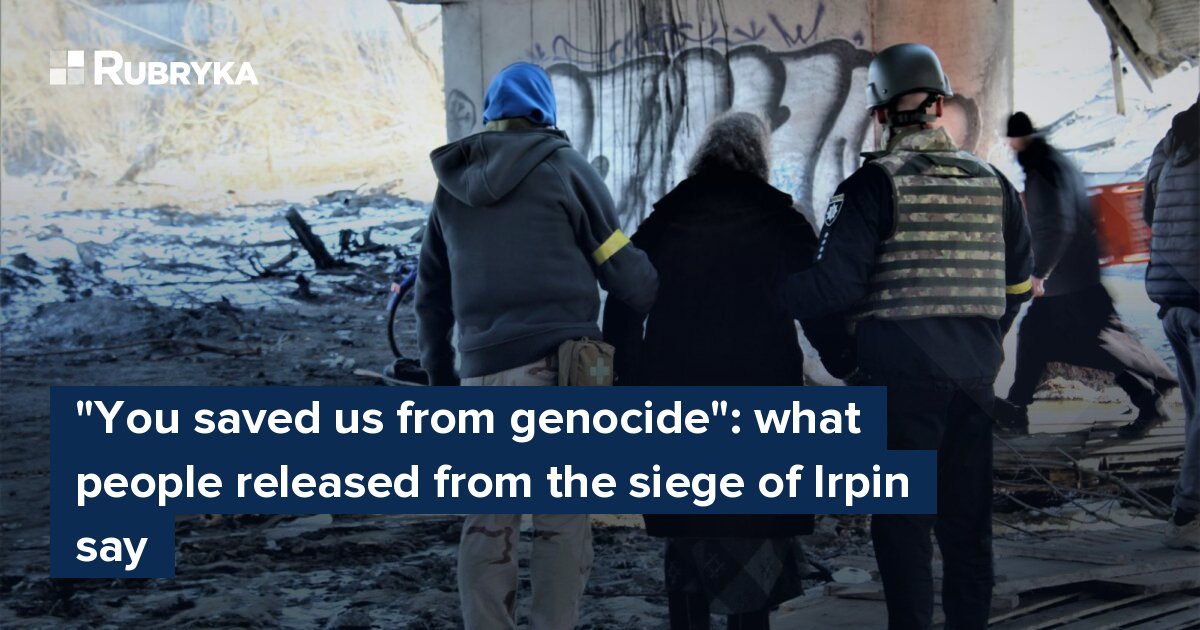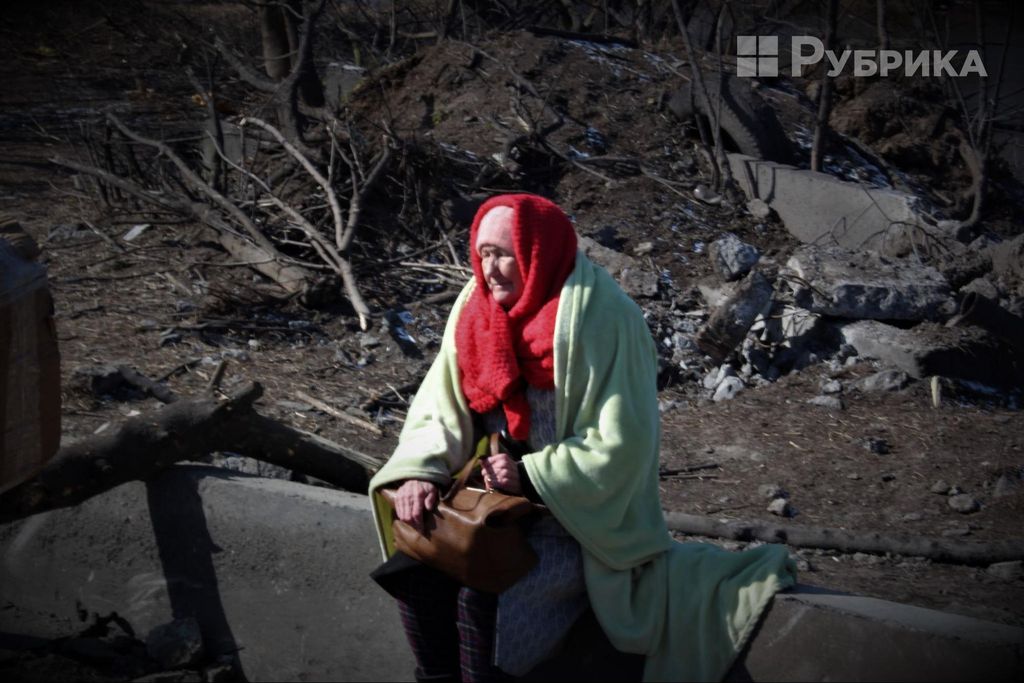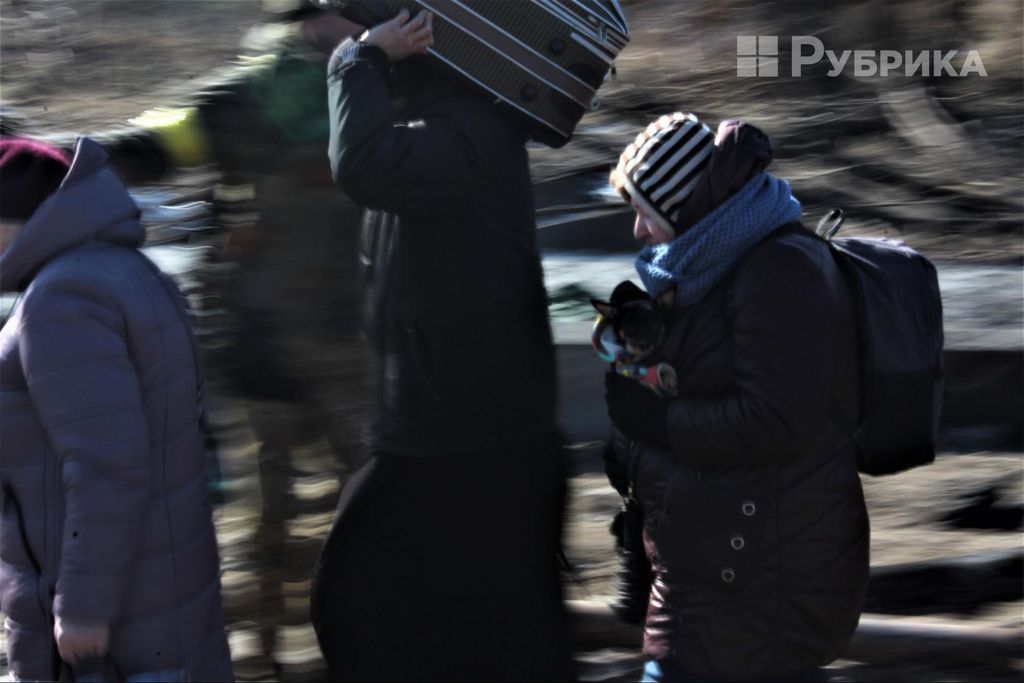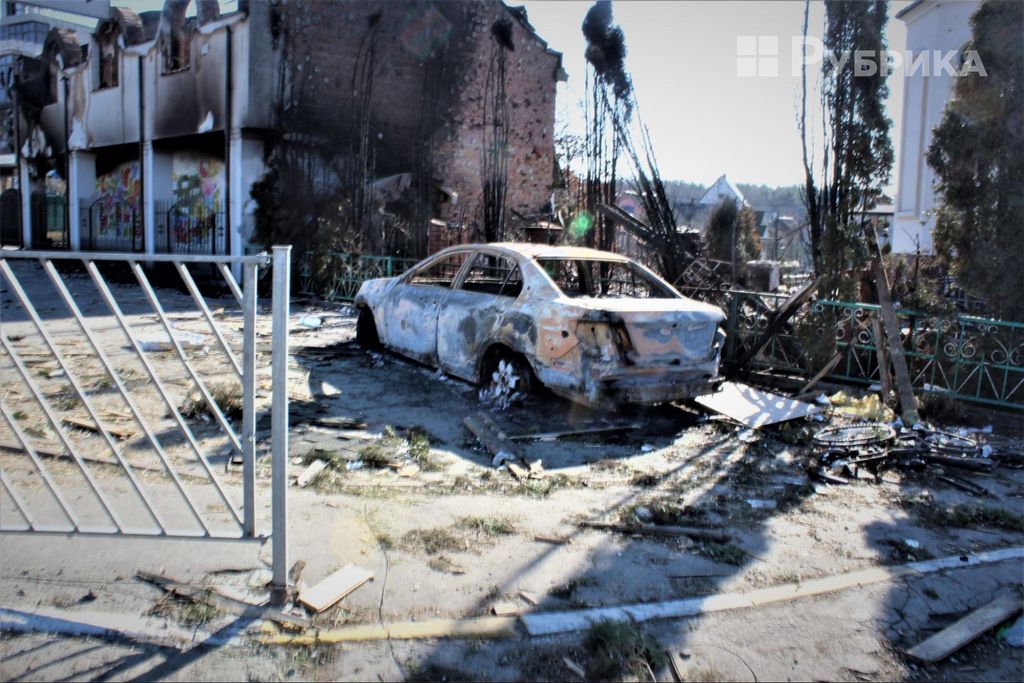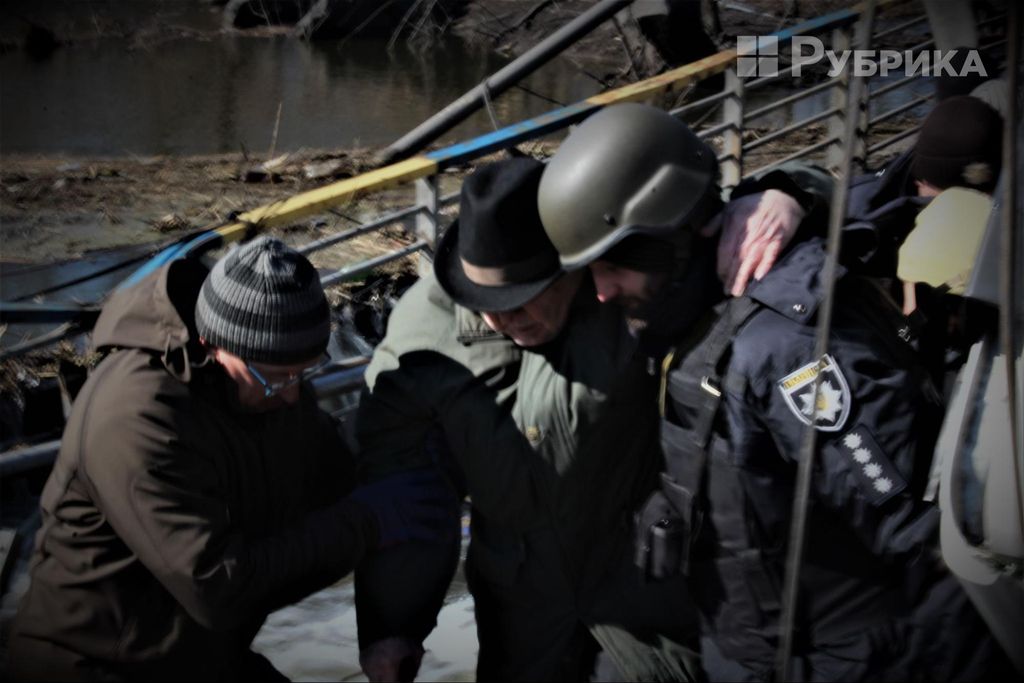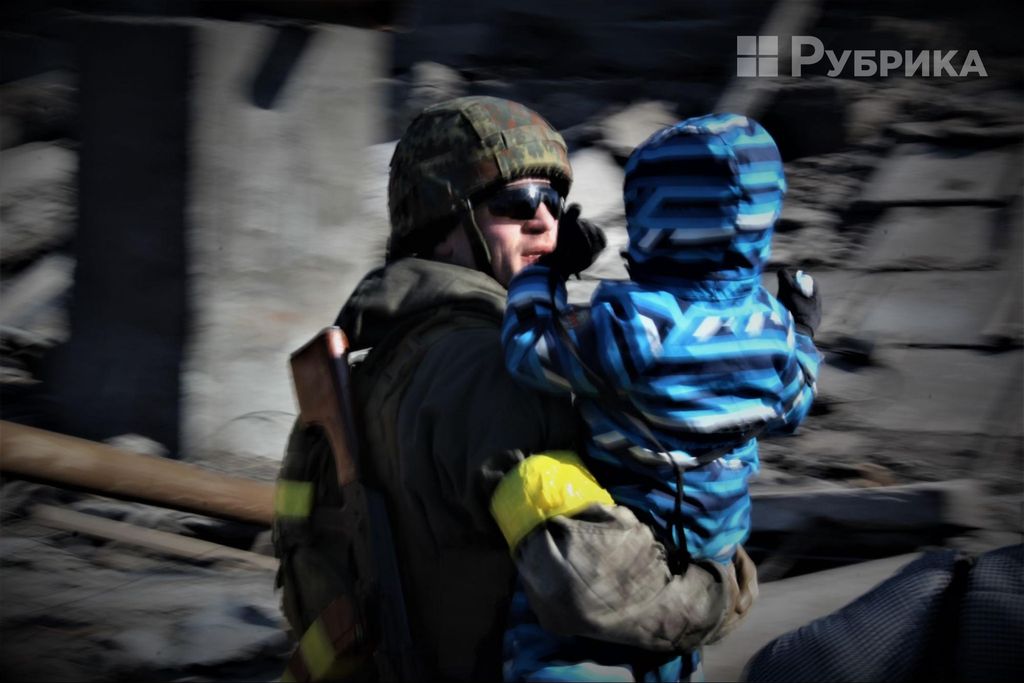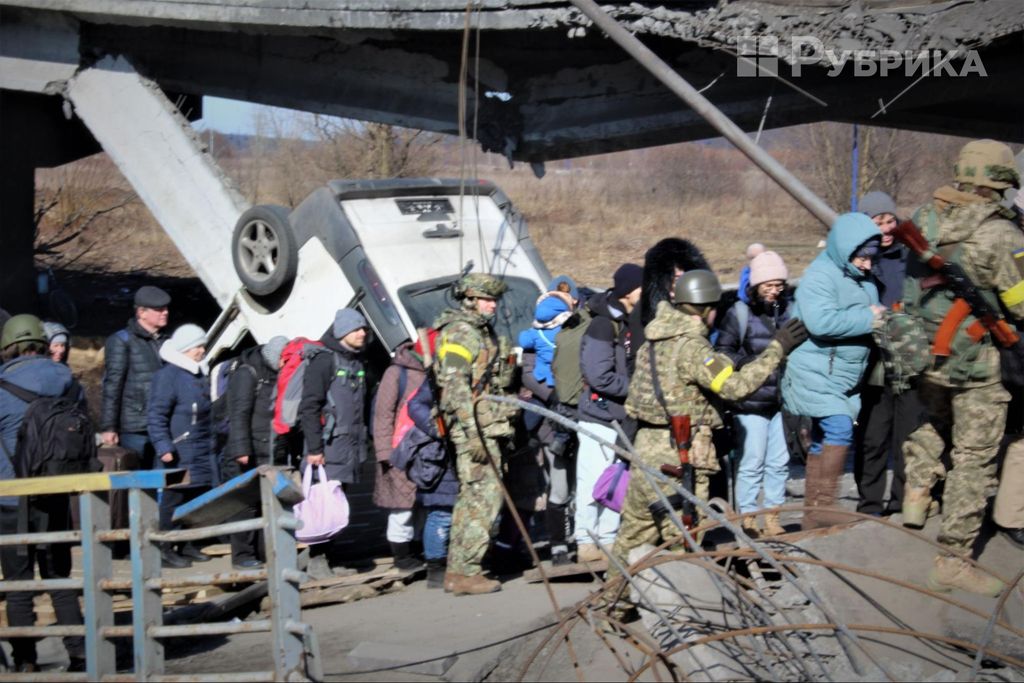
The military is helping the elderly to cross the crossing
Photos of the destroyed bridge on the Novoirpinska highway have already sprinted around the world-famous media. This bridge was blown up by the Ukrainian military to prevent Russian troops from entering Kyiv. Paradoxically, it was the ruined bridge that became a link between the city, besieged by Russian orcs, and rescue for the people of Irpin. For several days, the Ukrainian military, volunteers, and just people with cars have been helping to evacuate the residents of Irpin and other Kyiv region cities through paved slabs under the destroyed bridge.
And I want to believe that this evacuation will continue because some people continue to remain under siege.
The Rubryka journalist visited the evacuation site and recorded the emotions of people who escaped de facto two-week captivity.
"You are our guardian angels," said one of the women, hurriedly approaching the soldiers of the territorial defense unit. In her hands, there are bags and a small backpack on her back.
The soldiers take turns, methodically, and almost non-stop helping those who need it: they bring bags, carry children in their arms, help old people to carefully pass the concrete ruins of the bridge, under which the water flows.
Every 5-7 minutes there is someone who can not walk alone. They are carried on stretchers.
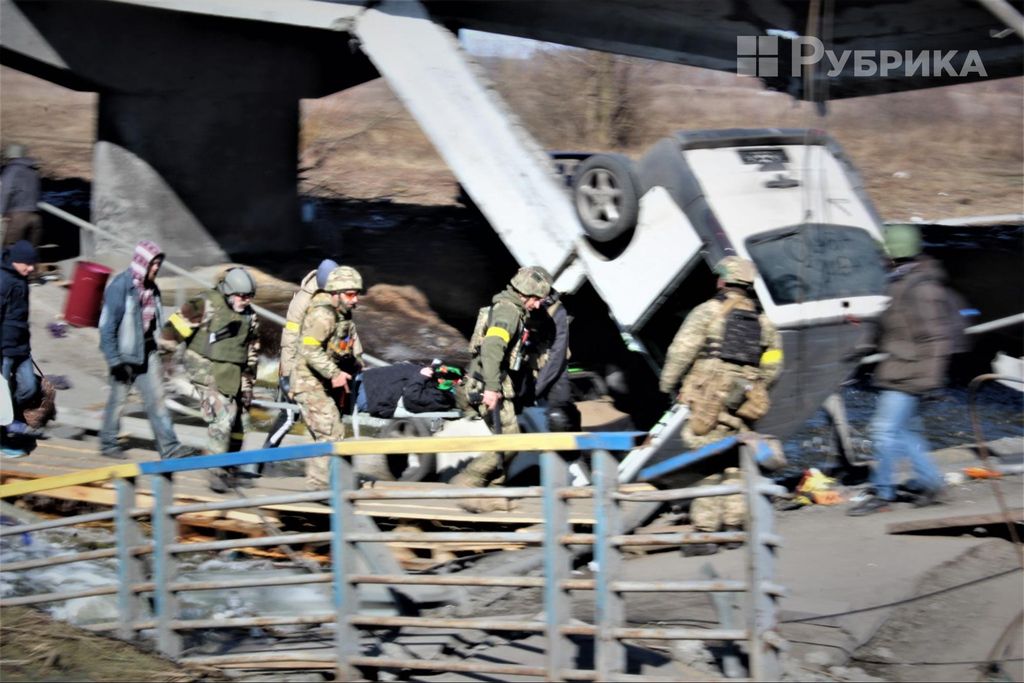
Many people could not overcome the crossing on their own. The woman in the photo was given medical assistance
We meet a woman with two bags and a folded spring jacket.
"What do you have in the package?"
"Cat… Wrapped up because he's freezing."
There are plenty of pets, by the way. Small and big dogs, cats in carriers, parrots: every life is important.
Another woman is standing on the side of the crossing. She talks to the soldiers:
"You know, there's a genocide. You saved us from genocide. We've been without food and water for 13 days. They fired constantly. We peek out of the basement, and there's an explosion, we're running back. And so it goes for 13 days, can you imagine?"
"Is the infrastructure in the city badly damaged?"
"Oh, don't even ask. Everything is damaged. There are, of course, some buildings standing, but many have turned to ruins."
Many people who cross the river have white handkerchiefs around their necks or arms. People wore them to protect themselves from the occupiers' shots.
"Grandma, take off that handkerchief," the soldier points to a white bandage over a black handkerchief. The woman doesn't understand at first.
"Son, can I keep it? My husband died…" she starts crying.
"Not a black handkerchief, but this white one. You don't need it anymore."
The woman said her husband died during the siege while they were hiding in the basement.
"Have you been in the basement all the time?"
"Yes, almost. Sometimes we went into the house. But it was unbearable. Constant shelling…"
Most people here are exhausted and depressed. But almost everyone is encouraged by the military and volunteers. Involuntarily, the thought slips through: these soldiers are also cool psychologists. They can find an approach for everyone.
A big guy in gear and with a weapon helps a mother with a young son in her arms to cross the river. It is clearly difficult for her.
"Let me take him," the soldier points at the child.
"No, he will not go."
"He will come to me," the soldier says and takes the baby in his arms.
A few words and they've established a connection. The boy behaves calmly in the arms of a soldier.
Yevhenia, whom we meet near the bus, is clearly in high spirits. She says:
"It was hard to imagine two weeks ago that just coming to Kyiv would bring so much happiness."
"Are you actually from the siege and so happy?"
"Yes, I'm happy to have escaped. You have no idea what the hell it is. These [Russians] are just wandering around the city, shooting those who wanted to leave. For all this time.
People are put on buses and taken to Kyiv. There is a transfer point; there they are treated to tea and food. Then, transported according to the direction. The most popular is the railway station.


